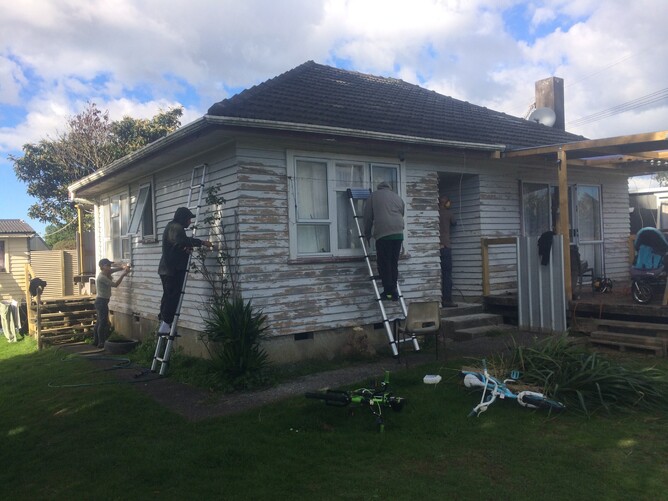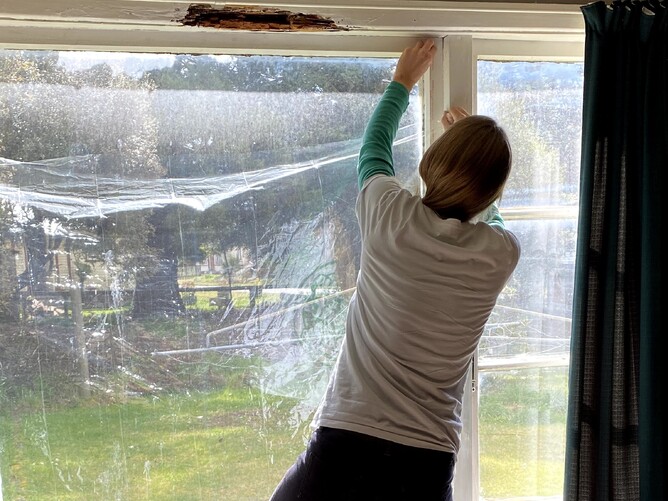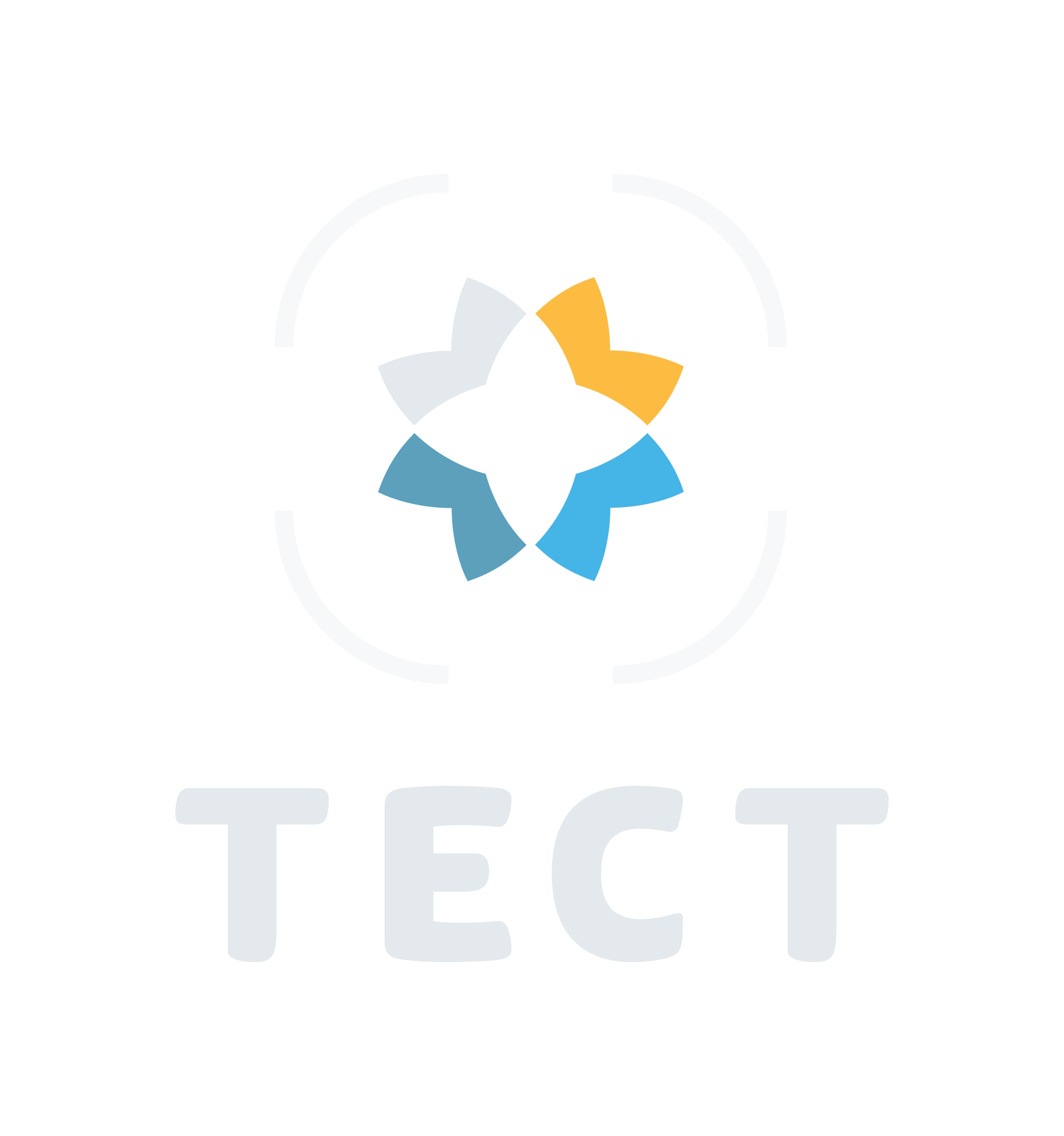Local funders and agencies have come together to tackle one of our region’s biggest problems; that our poor housing stock is having a serious impact on our health.
The programme, called 20 Degrees, aims to work with over 500 homes in the Bay over the next three years, with a vision for each home to reach 20°C, as recommended by the World Health Organisation for individuals who are vulnerable, unwell and prone to respiratory illnesses.
It’s a huge task to take on, but one that can make a transformational difference in our region, all made possible thanks to the collaborative funding partnership.
Funding partners TECT, BayTrust, Rotorua Trust, Bay of Plenty District Health Board, Toi Te Ora Public Health, and Western Bay of Plenty District Council, have committed over $1.5M to the first three years of the programme’s rollout – one of the largest collaborative funding efforts in the region’s history.
While the funders have pumped millions into home insulation across the Bay for a number of years, they were mindful that this was only one aspect of the solution and wanted to do more to address all areas that contributed to a healthy home. They also recognised that a collaborative funding approach was necessary to address the scale of intervention needed.
The project has taken a number of years to come to fruition, with initial discussions starting back in 2017 at a Healthy Housing Workshop attended by 31 agencies. The workshop generated ideas for how to improve the housing conditions in the Bay of Plenty region.
After further discussions between the philanthropic funders, and the development of a business case, the Collaboration Accord was signed off in March this year.
Sustainability Options is the delivery partner of the programme. The social enterprise has worked to improve housing conditions for the most vulnerable in our region since 2012 and has strong established partnerships with existing housing and Iwi/hapu programmes.
While the programme is just starting its journey, it is hoped that over the years, with increasing collaboration and funding partners, it will grow to address in greater numbers the widescale housing problem.
It is estimated that around 29,000 homes in the Bay of Plenty provide inadequate living conditions.
The reasons for this are cumulative – older housing, minimum building standards, poor materials, and deferred maintenance, have all led to homes that are simply too cold, damp, and in some cases, in appalling disrepair. This poor-quality housing is linked to diseases including rheumatic fever, cardiovascular disease, and respiratory illnesses and infections, including asthma, bronchiolitis, pneumonia, bronchiectasis, tuberculosis
There is also a need for education and understanding across the community and industry on how to keep our houses healthy.
The 20 Degrees programme carries out home assessments, identifying the issues preventing homes from reaching 20°C – whether that be significant structural concerns such as rotting floors or dilapidated roofs, repairs and maintenance needed like insulation, broken windows, draughts and leaks, or behaviours that need to be changed around moisture management, ventilation and heating.
The programme then takes an innovative approach to solve these problems. Rather than reinvent the wheel, 20 Degrees seeks to collaborate with other appropriate healthy housing programmes to achieve a collective outcome that benefits the home occupants – connecting them with any services or subsidies available, whilst helping them with a range of options. Existing programmes such as the Government’s Warmer Kiwi Homes, the Ministry of Health’s Healthy Homes Initiative, and Te Puni Kokiri grants are a great resource to usher a connection with.
20 Degrees then fills the gaps of any issues left unresolved, typically the minor repairs and maintenance, by fixing these at no or low cost to home occupants.
A prerequisite for the programme is that participants must be open to engaging with the education component of 20 Degrees – workshops and DIY lessons that build the knowledge and skills needed to keep homes healthy after these interventions have been made
20 Degrees aims to operate within communities who have severe housing needs and have identified these as a priority that they want to collectively address. In this way, community workshops and DIY lessons can be set up and supported through the local community networks.
The programme has seen workshops held where participants do the work directly on a house, learning as they go. This not only means homes get fixed, but local skills are developed and participants can then work together on other properties.
Through this commitment, and in conjunction with the collaborative model, it is hoped that homes will not only be healthy, resulting in fewer hospital admissions and reduced costs to the health system, but a shift in culture can be achieved; one where 20°C is the only minimum temperature that’s acceptable.
Nik Gregg, Sustainability Options Co-Founder, says the current housing situation has taken over 50 years to develop, and will take a multifaceted, flexible, engaged, and long-term approach to improve.
“The scale of the issue is arguably 50-70 years of housing stock being left to its own devices under private ownership. There’s an assumption that those who own these houses are able to maintain and sustain them by accessing funding such as loans or mortgages to do that – but that’s often not available. The costs of trying to fund the repair work needed can be a significant barrier to getting the work done.
“There is no other programme quite like 20 Degrees. It seeks to address the true scale of poor housing conditions in the Bay of Plenty and tackle it at a whole-of-house and whole-of-community level.
“You can have a home that is well-insulated, but if you have damaged roofing, draughty windows, holes in the floor, or rotten cladding, you’re not going to achieve that 20 degrees. There are many great programmes currently in place to help create warmer drier homes. 20 Degrees aims to work with and complement these programmes towards a collective outcome that results in a warm, dry, healthy home.”
The 20 Degrees programme aims to support three targeted groups: people in rental accommodation, low-income homeowners, and communities in need. Those in rental accommodation will receive workshop support and advocacy support, with landlords expected to cover the costs of any fixes. The funding support for repairs, maintenance and actions to achieve 20°C will be targeted to those on low incomes who own their own homes.
Referrals for the programme are received through social and community agencies and the regions DHB’s.
The development of the programme included research of existing housing quality initiatives, understanding critical gaps and drawing on the experience of community providers already working in the homes.
Nik says having a range of funding partners backing the programme is key to its success.
“By having a range of funders on board, not only is the pot of funds larger, but there are more synergies happening. Geographically we can get economies of scale and efficiency going, and agency-wise, we can deliver more effectively and get a better outcome for the family.”
To learn more, visit https://www.tect.org.nz/20-degrees/.





